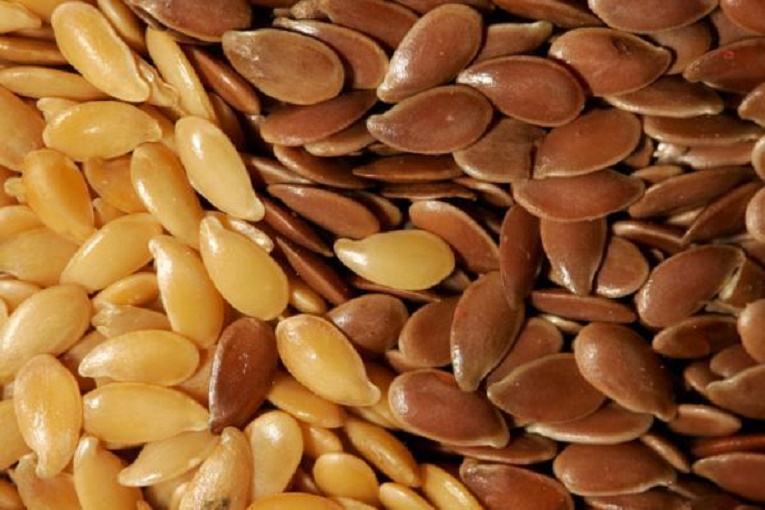By Rajiv Dixit::
Link:: https://www.youtube.com/watch?v=AclsCffns1c
Link:: https://www.youtube.com/watch?v=AclsCffns1c
There
are two types of cows. The European breed and the Indian breed.
European breed has A1 beta–casein protein. Indian breed has A2
beta–casein protein. All proteins are long chains of amino acids. Beta
casein is a chain 229 amino acids in length. Cows who produce this
protein in their milk with a proline at number 67 are called A2 cows,
and are the older breeds of cows (e.g. Asian and African cows).
But some 5,000 years ago, a mutation occurred in this proline amino
acid, converting it to histidine. Cows that have this mutated beta
casein are called A1 cows, and include breeds like Holstein.
High levels are found in many parts of northern Europe and also other parts of the world where particular breeds of European origin predominate.
A1 beta-casein releases bovine beta-casomorphin7 (BCM7) on digestion. BCM7 is a neurotoxin. It hampers neural communication with insulin generating cells in lever. Proline has a strong bond to a small protein called BCM 7, which helps keep it from getting into the milk, so that essentially no BCM 7 is found in the urine, blood or GI tract of old-fashioned A2 cows. On the other hand, histidine, the mutated protein, only weakly holds on to BCM 7, so it is liberated in the GI tract of animals and humans who drink A1 cow milk.
Due to this, enough insulin is not getting generated which leads to type 1 Diabetes. This is the reason why so many kids in Western countries and now in India are lactose intolerant. They cannot digest the important sugar. So if you regularly get A1 milk from your dairy, there are high chances that you or your kid or kid's next generation after 20 years will have one or more autoimmune symptoms.
A2 beta-casein does not release BCM7 in the milk and so it is safe. It is unfortunate that Indian Govt promotes A1 breeds more over local mother like Gau mata's breeds. Equally unfortunate is the ignorance of common public, including some Gau shala owners. They become sentimental and reply..."There is not difference in
cows. Cow is cow. Mother is mother." Sheer dance of ignorance!
Potential solution:
1) If you cannot avail A2 milk from desi gau, avoid milk from your diet
2) For children, we must strive to avail ethically procured milk
3) I personally do not prefer milk trade (Very reason why Shri Krishna was against Kamsa and his Nation). Instead, those who want milk, must take care Gau one or another way. It is reciprocal relation. You do seva, you get prasad.
High levels are found in many parts of northern Europe and also other parts of the world where particular breeds of European origin predominate.
A1 beta-casein releases bovine beta-casomorphin7 (BCM7) on digestion. BCM7 is a neurotoxin. It hampers neural communication with insulin generating cells in lever. Proline has a strong bond to a small protein called BCM 7, which helps keep it from getting into the milk, so that essentially no BCM 7 is found in the urine, blood or GI tract of old-fashioned A2 cows. On the other hand, histidine, the mutated protein, only weakly holds on to BCM 7, so it is liberated in the GI tract of animals and humans who drink A1 cow milk.
Due to this, enough insulin is not getting generated which leads to type 1 Diabetes. This is the reason why so many kids in Western countries and now in India are lactose intolerant. They cannot digest the important sugar. So if you regularly get A1 milk from your dairy, there are high chances that you or your kid or kid's next generation after 20 years will have one or more autoimmune symptoms.
A2 beta-casein does not release BCM7 in the milk and so it is safe. It is unfortunate that Indian Govt promotes A1 breeds more over local mother like Gau mata's breeds. Equally unfortunate is the ignorance of common public, including some Gau shala owners. They become sentimental and reply..."There is not difference in
cows. Cow is cow. Mother is mother." Sheer dance of ignorance!
Potential solution:
1) If you cannot avail A2 milk from desi gau, avoid milk from your diet
2) For children, we must strive to avail ethically procured milk
3) I personally do not prefer milk trade (Very reason why Shri Krishna was against Kamsa and his Nation). Instead, those who want milk, must take care Gau one or another way. It is reciprocal relation. You do seva, you get prasad.


